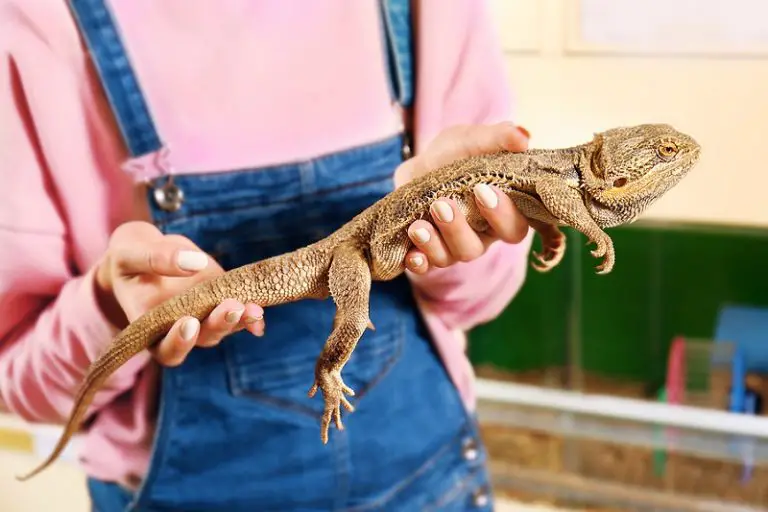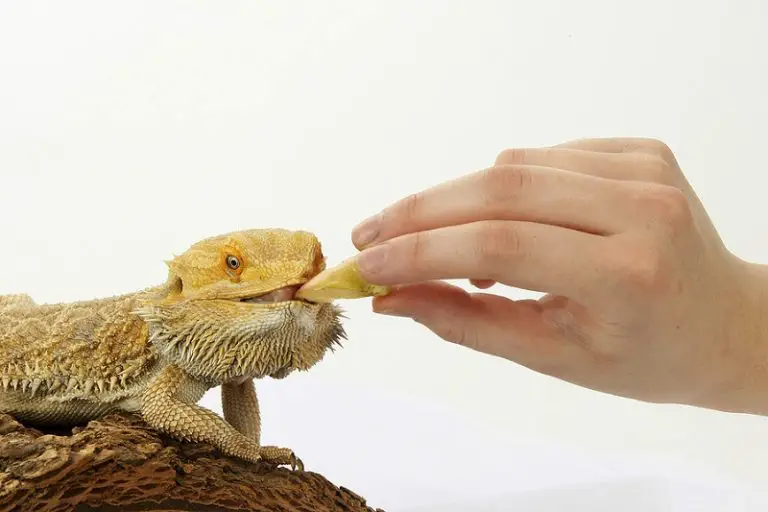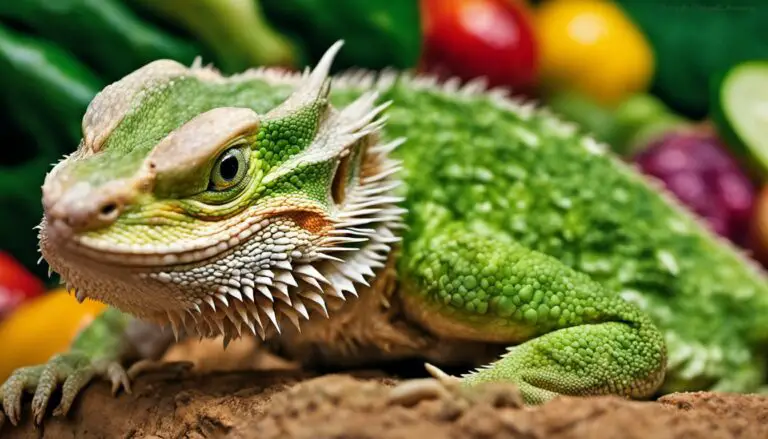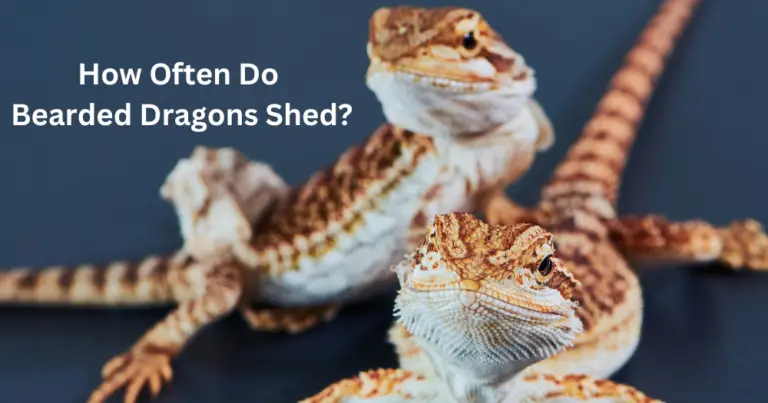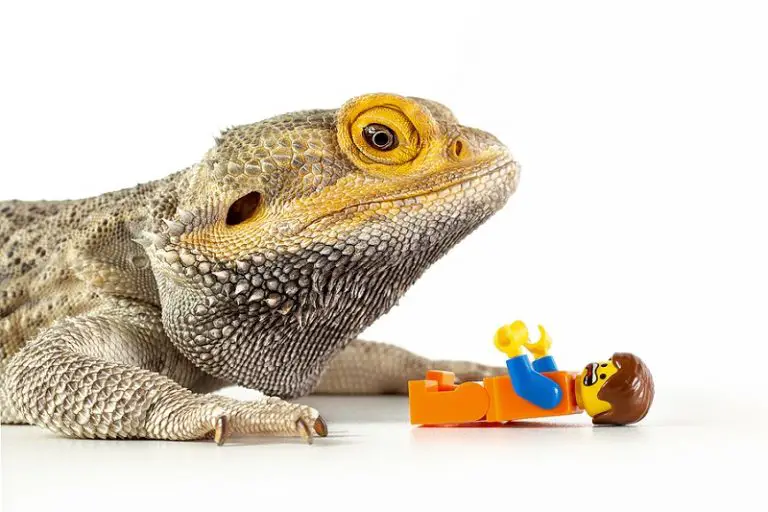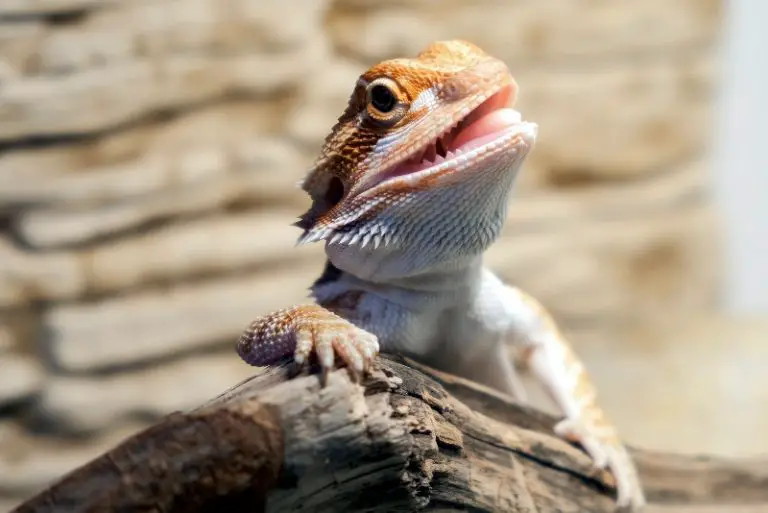How Many Mealworms To Feed A Bearded Dragon? [Read Now]
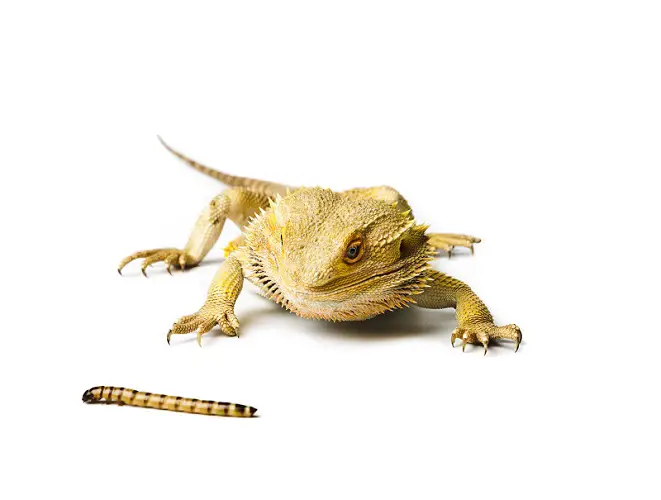
Bearded Dragons are omnivores, which means they eat plants and live food. As a result, these lizards have a wide range of food options. Mealworms are included in those options. It may not sound tasty to us, but Beardies love mealworms, and they’re a delicious snack for your favorite lizard. In this article, we’ll discuss everything about mealworms and Bearded Dragons.

For instance, we’ll give a brief overview of the Bearded Dragon and what mealworms are. Then, we’ll go in-depth about the benefits and problems of feeding your Beardie mealworms. Also, how many mealworms can you give them, how often, and how should you prepare them?
Contents
Table of Contents
What Is A Bearded Dragon?
First, let’s talk about what a Bearded Dragon is. Beardies are friendly, social lizards that make excellent pets. Beardies are low-maintenance to care for and are most active during the day. In other words, this reptile is an excellent pet for an adult or as a first pet for a child (with the help of an adult, of course).
Bearded Dragons originated from Australia and were brought over to the United States in the early 1990s. They’re used to a warmer climate and dry temperatures, so it’s best to mimic that habitat as best as possible.
For instance, they’ll need a terrarium that’s at least 40 gallons. During the day, the temperature inside the tank should be between 75 and 85 degrees F with a basking spot of about 100 degrees F from the help of a UB light. At night, the tank can be a cooler temperature of 68 to 74 degrees F.
If your Beardie gets the proper habitat and is handled well, they’ll be a happy lizard. They’ll be able to grow up to 24 inches long and be part of your family for up to 15 years.
What Are Mealworms?
Diet is another essential aspect of caring for your Bearded Dragon. Of course, you can include mealworms in that diet, but what exactly are mealworms? Is feeding mealworms to Bearded Dragons safe?
Mealworms have many great nutrients for Bearded Dragons. For example, they have:
- High water content
- Protein
- Low in fat
- Calcium
- Phosphorous
- Fiber
There are a few ways you can feed your Beardie this worm so that they can get the highest nutrients possible.
In addition, mealworms or superworms for Bearded Dragons are safe.
What Are Superworms?
Superworms are another type of worm to feed your Bearded Dragon. They’re often mistaken as giant mealworms because they look alike, but they’re two different insects.
This type of worm has more nutrients than mealworms. But, on the other hand, superworms are high in fat.
Can Bearded Dragons Eat Mealworms?
Are you wondering, can I feed my Bearded Dragon mealworms? The short answer is yes. Not only is it nutritious for your Beardie, but they also think the worms are tasty.
Can I Feed My Baby Bearded Dragon Mealworms?
When it comes to feeding mealworms for baby Bearded Dragons, they should stay away. They’re still nutritious for baby Beardies, but mealworms have a hard shell or chitin that’s difficult for babies to consume.
Are Mealworms Good For Bearded Dragons?
Yes, mealworms are suitable for Bearded Dragons. They have nutrients that Beardies need including calcium. While they don’t make a great meal on their own, you can feed mealworms to your Beardie as a supplement.
Are Mealworms Good For Baby Bearded Dragons?
No, mealworms are not suitable for baby Beardies. Even though they can still get nutrients from this food, it’s more of a choking hazard for them or causes an obstruction.
For instance, mealworms have a hard outer shell called the chitin, which is difficult for baby Bearded Dragons to digest.
How Many Mealworms To Feed A Bearded Dragon?
So, how many mealworms should a Bearded Dragon eat? You can feed about five or six mealworms to your adult Bearded Dragon each mealtime.
However, they should only be fed as a supplement to other insects.
How Many Superworms Should I Feed My Bearded Dragon?
Superworms are larger than mealworms, and they have a higher fat content. So, you can feed your adult two or three superworms per feeding.
Similar to mealworms, they should be used as a supplement to other insects.
How Many Mealworms Should I Feed My Baby Bearded Dragon?
The quick answer is none. This is because mealworms can pose a choking hazard for baby Beardies.
On the other hand, you can feed superworms to babies. The chitin on superworms is softer. Therefore, baby Bearded Dragons can digest it easily. However, since this worm is bigger, a baby should only get one at a time.
Benefits And Problems With Bearded Dragons And Mealworms
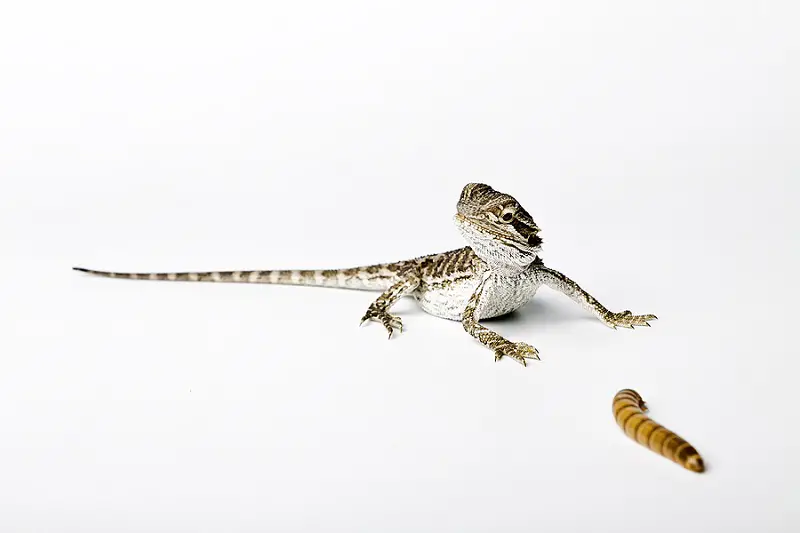
Since Bearded Dragons are omnivores, they love to have some live food as part of their diet. However, some insects are healthier than others.
Mealworms benefit Beardies, but there can also be some drawbacks to feeding these worms to your lizard.
First, are mealworms safe for Bearded Dragons? Yes, and here are a few reasons why.
Mealworms Have High Water Content
First, mealworms contain a lot of water. This is great to keep your Beardie hydrated. However, be mindful that too much hydration can lead to diarrhea.
Mealworms Contain Protein
Mealworms are an excellent source of protein. Protein helps build and develop your Bearded Dragon’s muscles.
Also, are mealworms bad for Bearded Dragons? No, but there are some drawbacks.
Mealworms Are High In Fat
Some fat is good, but too much can cause health problems. For example, if fed a lot of mealworms every day, your Beardie could become obese, or they may get hepatic lipidosis.
Mealworms Have A High Phosphorous To Calcium Ratio
Bearded Dragons need a diet where there’s more calcium than phosphorous. Phosphorous binds the calcium so that it’s not absorbed, making it, so your Beardie isn’t getting the calcium they need. Also, too many mealworms may cause a calcium deficiency.
Mealworms Have A Hard Outer Shell
Baby Beardies can’t eat mealworms because of this outer shell. Adults can, but you still want to be careful. It can still pose a choking hazard and cause impaction.
Check out the table below for a quick look at the benefits and drawbacks of feeding mealworms to your Bearded Dragon.
| Pros | Cons |
| High water content | High in fat |
| High in protein | High phosphorous to calcium ratio |
| The outer shell might be a choking hazard |
How Much And How Often Can I Feed Mealworms For Bearded Dragons?
A good question to ask your vet is, “how many mealworms should I feed my Bearded Dragon?” This is because the amount will depend on your Beardie’s size and age.
In addition, if your Bearded Dragon has never had mealworms before, it’s best to check with your vet before feeding them any new foods.
For baby Bearded Dragons, the answer is none. They should not eat mealworms. However, juvenile Beardies that are about five to 18 months old can eat baby mealworms. However, they should only be offered one or two per feeding.
Adult Bearded Dragons over 18 months of age can eat about five or six adult mealworms per feeding.
Be mindful that mealworms should supplement other insects and plants and not be considered a complete meal.
How To Prepare Bearded Dragon Mealworms
Before giving mealworms to your Beardie, you’ll want to dust them with calcium powder. These worms have more phosphorous than calcium, so adding the extra calcium will allow your lizard to get the nutrients they need.
In addition, you can add other supplement powder such as Vitamin D or anything else your lizard may need.
Live Mealworms For Bearded Dragons
Live mealworms are the best way to feed your Bearded Dragons. They hold onto the nutrients better and are moist. However, it’s more expensive to buy live mealworms than dried ones at the pet store.
Dried Mealworms For Bearded Dragons
Are dried mealworms good for Bearded Dragons? Yes, they are. Dried mealworms can be dried naturally or freeze-dried. They may lose some nutrients, but they have a longer shelf life and are cheaper for you to buy at the pet store.
How To Feed Mealworms To Your Bearded Dragon
There are two ways to feed mealworms to your Beardie.
First, you can hand-feed them the mealworms. This is an excellent opportunity for you and your Bearded Dragon to bond together. You can give the mealworms to your Beardie by hand or by using tweezers.
However, be mindful that Beardies can bite. They’re not aggressive but might accidentally nip your finger if you hand feed them.
Second, you can put the mealworms in a dish for your Beardie to eat in their own time. A bowl will make it so the mealworms can’t escape. However, if feeding a juvenile Beardie, then a plate might be easier for them.
Conclusion
Overall, mealworms are a great snack for Bearded Dragons, but they shouldn’t be given as a meal. They need to be fed to your Beardie in moderation, but they can eat it often enough that you can share some mealworms with them every feeding time.
Remember, talk to your vet first before trying new foods with your Bearded Dragon. Otherwise, your Beardie is sure to love this tasty treat.
Also find our guide to whether bearded dragons can eat kale, strawberries or grapes and know exactly what not to feed bearded dragons.
Wondering if your Beardie loves you? Read our full article on how bearded dragons show affection or read more about bearded dragons here.

